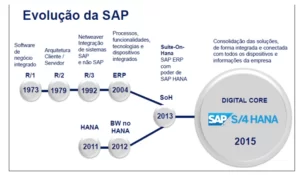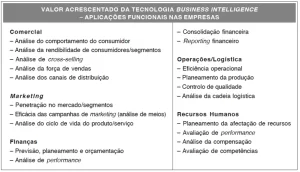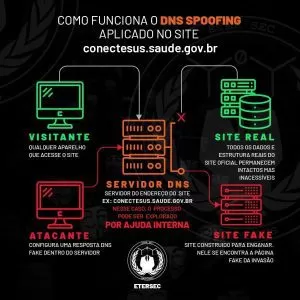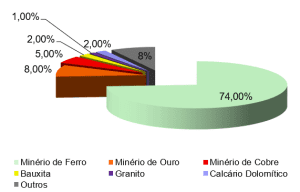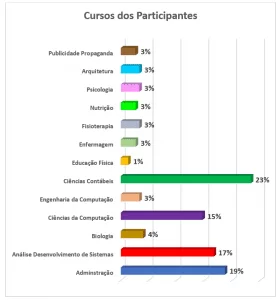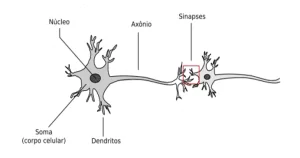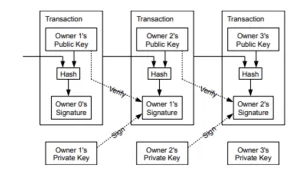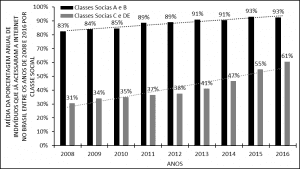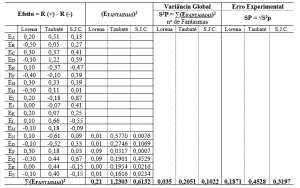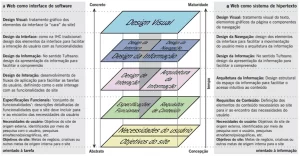ORIGINAL ARTICLE
SAMPAIO, Paulo Augusto Santos [1], CUEVAS, Luiz [2]
SAMPAIO, Paulo Augusto Santos. CUEVAS, Luiz. OKR and its importance in companies. Revista Científica Multidisciplinar Núcleo do Conhecimento. Year 05, Ed. 10, Vol. 18, pp. 119-126. October 2020. ISSN: 2448-0959, Access link: https://www.nucleodoconhecimento.com.br/technology-en/okr-and-its-importance
ABSTRACT
The current problem observed in companies, whether medium, small or large, is the lack of consistency in project results and deliveries. There are major impasses in companies when it comes to completing assertive projects, especially in the IT sector. Thus, a management methodology capable of being easy to apply, with achievable and motivational results, ends up becoming a great differentiator for companies in the market. Therefore, this study seeks to understand the importance of the OKR methodology, which works with objectives and key results in order to bring a new vision to companies in relation to management methodology. For such, the study used as a methodology the bibliographic review through the qualitative approach, where through the defense of other scholars the theme was approached. The objective is to present a management model that is easy to apply in companies in order to bring assertive and consistent results. As a general objective there is the understanding of the application of the OKR methodology and its influence on the final result of the goals sought by the company.
Keywords: Management methodology, OKR, Objectives, Projects.
1. INTRODUCTION
Innovation is the context that changes and transforms current companies, arising from great competitiveness, companies seek innovative methodologies that help them to remain in the market. Derived from this constant search for change in order to demonstrate its differential, the OKR methodology was created.
It operates with objectives and key results that bring consistent and assertive results to the company, and the need to work with such a concept is the constant search for change that makes the company possess its market differential.
Therefore, this study seeks to bring out the importance of the OKR methodology in companies, a simple and innovative methodology that has helped companies like Google to establish themselves in the current market.
As a general objective, this study seeks to analyze the importance of OKR in companies, as specific objectives, it is sought to understand the effectiveness of the management methodology in projects, to discuss the OKR methodology, to analyze the application of the OKR methodology in companies.
As a work methodology, a bibliographic review was used, where through the study of other authors who delved into the subject, the study was explored and the work approach was qualitative.
The study is justified by the need for innovation in the management methodology of companies in relation to the delivery of IT projects, as companies usually start their projects, but are unable to finish them due to the lack of effective and motivational management strategies that help the company.
Through this study, we seek to help future studies so that companies understand the need to invest in management methodologies that are simple and with applications that are well focused on results and deliveries, such as the OKR methodology.
2. THE EFFECTIVENESS OF THE MANAGEMENT METHODOLOGY IN PROJECTS
As analyzed by Rocha (2020), arising from a high degree of competitiveness, current companies need to establish well-consolidated competitive strategies and have good planning and execution of strategies. To this end, companies are linked to management methodologies that do not guarantee consistent results in their projects, in this way, many companies fail and are unable to establish themselves in the market.
There is a need to consolidate the strategies applicable to a project, so the use of new management metrics in projects is essential, bringing not only the novelty to the company, but the ability to work with management in a different way in order to bring better results.
According to Gido and Clements (2007) the act of planning is linked to effort in order to achieve a specific objective through a set of interrelated goals and the effective use of resources. However, Heldman (2006) goes beyond these ideas, emphasizing that a project is a temporary undertaking with the purpose of inventing a unique product or service, ending this only with the completion of its goals and objectives and the approval of interested parties (stakeholders), differing from the repeated processes that are normally carried out to achieve the same results.
In order for the scope of the project to be inherent in the company, there is a need to acquire a good management methodology in a way that is concise and assertive and does not bring harm due to non-delivery or delay in project deliveries.
When choosing a management methodology, it should aim at delivering projects, which ends up being a factor that companies forget, as they do not seek effective management methodologies and end up neglecting project delivery and many projects are analyzed in companies, that are started, but are not finished, generating losses of time and money for the company.
Therefore, management applicable to projects is essential for the development of the company, helping to improve results and the company’s best efforts in project management.
3. THE OKR METHODOLOGY
For Souza (2018) the Objectives and Key-Results (OKR) framework is one of the management frameworks by objectives most adopted by market companies. Due to its adaptability, OKR can be applied in any organization, regardless of its market segment, maturity level or number of employees.
OKR works with objectives and key results that are drawn by analyzing the company’s needs, thus helping in teamwork and delivering concise results.
Maciel and Arcoverde (2014) point out that the difficulty in establishing and pursuing goals in companies generated a lack of visibility of the organizational strategy, a feeling of unproductivity, organizational misalignment, among other consequences.
OKR is an easily adaptable management methodology, it is known as a lean management model and simple to apply in companies, due to its easy adaptation, it is a management model that guarantees more concrete results and helps to achieve results more quickly.
Because it is an adaptable and simple methodology, it provides constant results to companies, who learn not only to work in a team, but to deliver assertive projects. The facilitator of the application of the OKR methodology is the measurement of goals and key objectives, because, as it is easy to measure, the company is able to analyze whether it is achieving its goals or if it needs more challenging goals, thus providing its growth.
Developed by Andrew S. Grove, former CEO of Intel, the OKR methodology became known after supporting Google’s exponential growth.
Proving to be effective both for SMEs, as was the case for the largest information company in the world in 1999, when it started using OKRs with 40 employees; as for large corporations, current reality with more than 60 thousand involved.
4. APPLICATION OF OKR IN COMPANIES
According to Vigorito (2019) technological advancement and competition between companies performance. The creation of new management methodologies is intrinsically linked to the execution of business strategies that help consolidate companies in the market.
When dealing with new methodologies, the focus of the study is directed to the OKR methodology, which seeks to help companies to outline objectives and key results that help them in the search for satisfactory results.
The OKR methodology works with predefined objectives and key results that help achieve each objective. Vigorito (2019) argues that performance measurement is directly linked to the continuous improvement process of companies, so the OKR methodology helps in controlling the performance of companies, being able to adapt to each need and analyze how companies respond to the objectives proposed to them through the methodology.
An important concept when analyzing the OKR methodology is its simplicity, as mentioned above in this study, the simple and lean application helps companies to apply the OKR methodology more easily and thus observe whether their projects are measurable and achievable.
As mentioned above, the OKR methodology works with key concepts that aim at a common objective for the company, and its metric is widely used in the IT sector in order to deliver consistent projects to the market.
Performance measurement in the OKR methodology is essential, as detailed by Bond (1999) it is able to help identify the company’s performance, detecting which agents are likely to be influencing the current situation; and what the actions to be taken may be, therefore, it is a fundamental part of the continuous improvement process of organizations.
According to Niven and LaMorte (2016) the OKR’s system aims at a total alignment of the organization with the defined objectives, so they must be defined at the organizational level and also at the team level, so when working with the OKR, analyzing it if in its application the objectives not only of the company as a whole, but of each team that acts in the process of application of the methodology.
For the company to achieve the desired success, it is necessary that each objective of each team is well aligned and outlined, so that each OKR is achieved and, finally, the company’s common objectives achieve the expected results.
In order for OKRs to be achieved, they need to be constantly reviewed, at least every 3 months, as defended by Vigorito (2019), because when measuring the company’s OKR, it is analyzed whether the objectives are being achieved, or there is a need to raise the company’s challenges so that it achieves the desired success.
According to Niven and Lamorte (2016) objectives should be defined as a phrase that aspires to a broad and qualitative goal designed to drive the organization in a desired direction, always trying to answer the question “Where do I want to go?”. Objectives must be qualitative, easy to memorize and somewhat inspiring.
According to Sebrae (2020), the OKR culture is generally established when companies are interested in joining structured processes to achieve their goals. Thus, OKR’s deal with a set of interconnected goals, which even if achieved individually or collectively, will bring contributions to the objectives, in a macro perspective, of an organization. In this way, they are fundamental for the professional to direct his efforts in the right places, without wasting any unnecessary energy.
In the OKR methodology, it is possible to renew the goals every quarter. Thus, this method can be summarized as: the company will achieve X (objective), measured by Y (metric). Thus enabling the team to list the actions to be carried out in that period, giving north to their lengths.
According to Rocha (2020), one of the most interesting aspects of OKRs is the fact that the model is not systematic and has several inflexible rules, such as traditional management methodologies.
Soon OKR helps the company with new metrics and stimuli considered innovative that help the company to have a new perspective on its projects, so that the projects are not stuck only on paper, but can have their conclusion and can bring the expected results.
5. OKR AS A NEW MANAGEMENT METHODOLOGY AND ITS APPLICATION
The OKR methodology works with objectives and key results, because of this its application boils down to the acronym OKR, O for objectives and KR for key results, so the OKR methodology outlines objectives that must be achieved by the teams and the company and derived from these objectives key results are created that must be achieved in order for the final objectives to be achieved.
Therefore, working with this simplicity, the OKR methodology becomes a strategic management methodology that is easy to apply in companies and that provides more effective results by facilitating teamwork.
According to Rocha (2020) the objective is qualitative and the KRs (most often between 2 and 5 for each objective) are quantitative. Soon it is possible to measure the OKR that is being applied in the company and observe if the final objectives will be achieved. The measurement of the OKR is essential, so that the company can verify that the methodology is being effective in the company and is acting in accordance with its role of assisting in teamwork so that together the company achieves all its objectives, resulting in growth in the market and more assertive deliveries of projects.
For example, a good OKR control is weekly reports issued by the project team, monitoring whether the sector’s projects are being delivered with the dates and adequate planning, in this way it is possible to analyze the team’s alignment and the delivery of results.
Having constant control of the KR’s is essential for the team to always be aligned with the company and for the objectives to be achieved efficiently, always analyzing the need for change and adaptation of the key objectives so that the company can always be in pursuit of the your goals.
6. CONCLUSIONS AND FUTURE WORK
The OKR methodology, as mentioned above, is directly linked to the concept of innovation in the company, its application can be carried out in small, medium or large companies and the results are usually consistent, as it is simple to apply and helps to motivate teamwork.
The OKR strategic management methodology helps in a new management concept that is being used in companies and that seeks the concise delivery of results, since the biggest motivator of bankruptcy and bankruptcy of large corporations is the startup of projects and the lack of assertive results.
Thus, this study sought to analyze the opportunity to bring a new management methodology that can help in the concrete delivery of projects. Working with OKR is bringing innovation, as companies are already used to working with PMI and its concepts, but new processes and new metrics for analyzing results are essential for companies to be able to grow in an innovative and unique way in the market.
Thus, achieving all the initial objectives proposed in this study, the work reached its final objective in order to assist in future studies about the application of OKR for the development and delivery of results of companies in the project sector in the IT area of companies.
REFERENCES
BOND, T.C. The role of performance measurement in continuous improvement. International Journal of Operations & Production Management. Bangley, p. 1318-1334, 1999.
GIDO, J., CLEMENTS, J.P. Gestão de Projetos. 3ª edição. São Paulo: Cengage Learning, 2007.
HELDMAN, K. Gerência de Projetos. 7ª edição. Rio de Janeiro: Elsevier, 2006.
MACIEL, T.; ARCOVERDE, D. Gestão por Objetivos e Resultados com OKR; Núcleo de Tecnologia da Informação – Universidade Federal de Pernambuco (NTIUFPE). Recife. Disponível em: http://www.xiwticifes.ufba.br/modulos/submissao/Upload-353/86125.pdf, acessado em: 28 de agost de 2020.
NIVEN, P. R; LAMORTE, B. Objectives and Key Results: Driving Focus, Alignment, and Engagement with OKRs. Nova York: John Wiley & Sons, v. 1, 2016.
ROCHA, T. OKR: o que é, como a metodologia pode ajudar a sua empresa e exemplos para você implementar. 2020. Disponível em: https://resultadosdigitais.com.br/blog/o-que-okr/. Acessado em: 19 de agos de 2020.
SEBRAE. Gestão por resultados. 2020. Disponível em: https://m.sebrae.com.br/Sebrae/Portal%20Sebrae/UFs/DF/Anexos/Gest%C3%A3o%20por%20resultados.pdf. Acessado em 21 de agos de 2020.
SOUSA, M. H. A. Um estudo de caso para avaliar a eficiência de OKR em uma empresa júnior. Trabalho de Conclusão de Curso apresentado ao curso de Engenharia da Computação da Universidade Federal de Pernambuco como requisito parcial para obtenção do grau de Bacharel em Engenharia da Computação. Recife. 2018.
VIGORITO, L. V. Estudo de caso da utilização de OKR para acompanhamento estratégico da ampere Racing. Trabalho de Conclusão de Curso submetido ao Curso de Graduação em Engenharia Elétrica da Universidade Federal de Santa Catarina como parte dos requisitos para obtenção do grau de Bacharel em Engenharia Elétrica. 53 p. Florianópolis. 2019.
[1] Graduating in Information System at FUCAPI.
[2] Advisor. Professor at FUCAPI College.
Shipped: September, 2020.
Approved: October, 2020.

